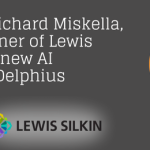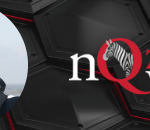Anthropic announced on 2 September that it has completed a Series F fundraising of $13bn led by ICONIQ, with the financing valuing Anthropic at $183bn – three times its valuation in March. Anthropic is the company behind the Claude large language model, which is incorporated in the likes of legal AI platform Harvey, Thomson Reuters CoCounsel, and LexisNexis Protégé. While no connection has expressly been drawn between the raise and litigation, Anthropic has also has just reached a preliminary settlement in what was said by one law professor to be a potentially “business ending” copyright class action, with that settlement expected to be finalised on or before today (3 September), according to legal filings.
The new investment round – which follows a $3.5bn raise/$61.5bn valuation in March this year – reflects Anthropic’s huge continued momentum. Harvey, for one, deployed Claude across its platform in March this year and said that it took just one month, with Claude achieving one of the highest performance scores in Harvey’s proprietary BigLaw Bench evaluation. Harvey also reported that Claude delivered statistically significant improvements on complex workflows requiring long-context reasoning. Legal tech providers and end users continue to evaluate where different large language models excel and provide an improved performance, and Claude is able to handle long-context reasoning well, which is critical for legal work involving extensive documents. Vendors such as LexisNexis and Thomson Reuters take a multi-model approach to LLMs that includes Claude, while Claude is also used by legal tech vendors such as Robin AI and Notion AI.
Anthropic, founded in San Francisco, says that the Series F investment will expand its capacity to meet growing enterprise demand, deepen its safety research, and support international expansion.
In terms of litigation, there are two takeaways. Much like other GenAI frontrunners, Anthropic has been embroiled in litigation, accused of using copyrighted material without permission to train Claude. In a class action with a group of US authors, US District Judge William Alsup ruled in June that while Anthropic had made fair use of authors’ work to train its AI, the company violated copyright law by downloading them through so-called shadow libraries such as LibGen. The trial was slated to begin in December and Santa Clara law professor Ed Lee said it had “at least the potential for business-ending liability.” Now the parties expect to finalise the terms of the settlement by 3 September, and file it for approval by Alsup by 5 September, with a hearing set for 8 September to approve the settlement. The terms are yet to become public. The takeaways, albeit assumptions, are one, investors are in favour of the settlement because they are throwing money at Anthropic and two, this is still going to be expensive. Other litigation is still outstanding.
Overall and in more general terms, fundraises such as this ensure that Anthropic can keep pace on model development and is, more than ever, a true competitor to market leader OpenAI. Anthropic said yesterday that its run-rate revenue eight months ago was approximately $1bn, but in August was $5bn, making it one of the fastest-growing technology companies in history. A competitive AI ecosystem can only be good for all.












